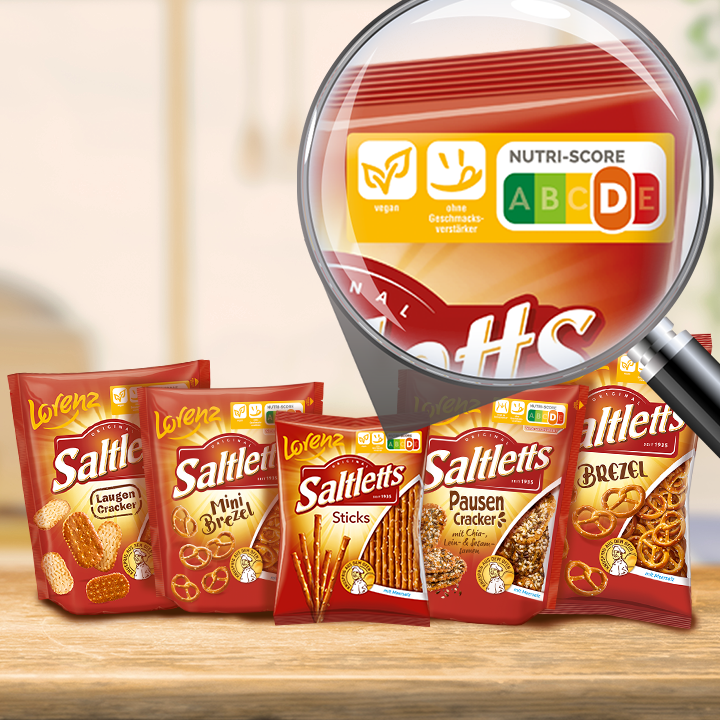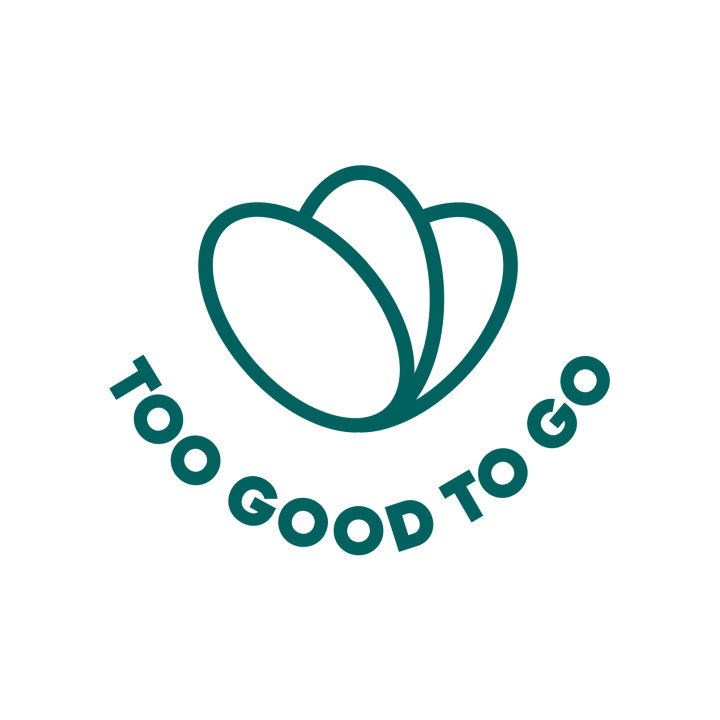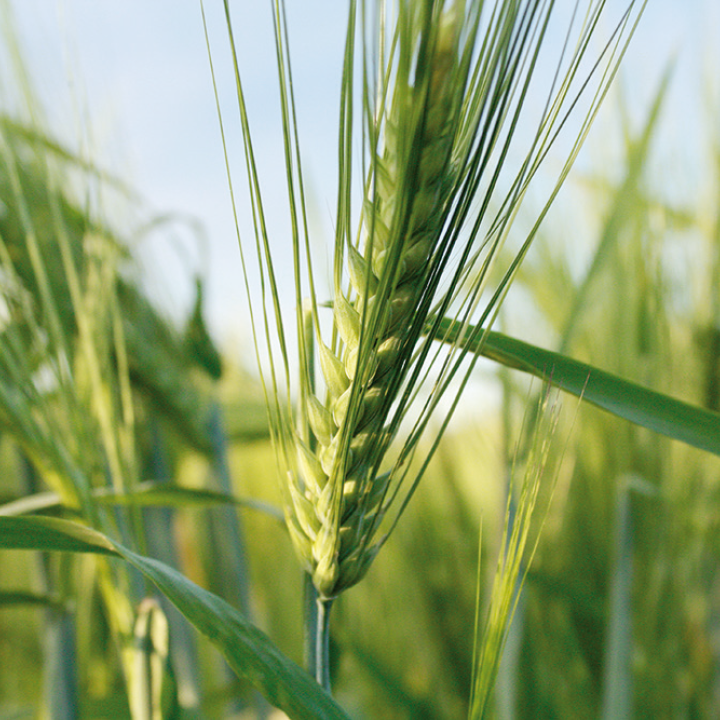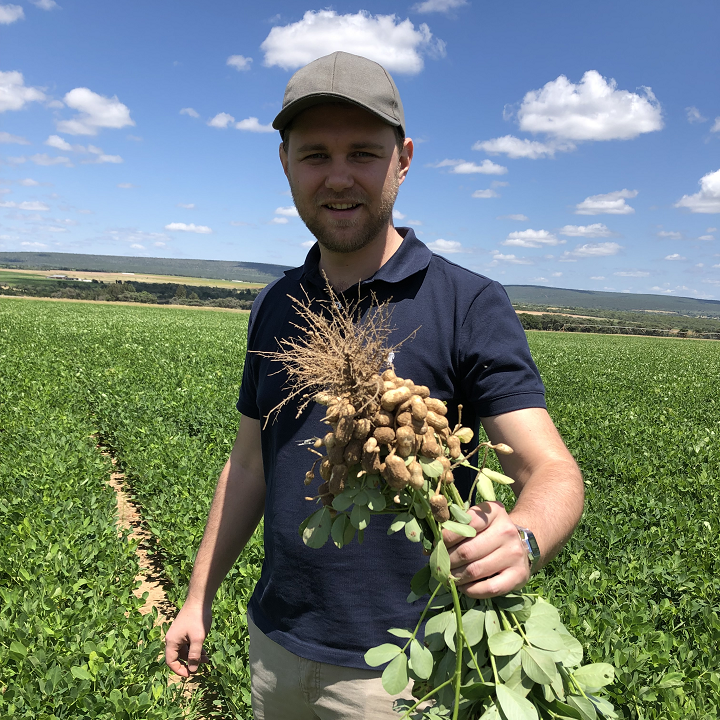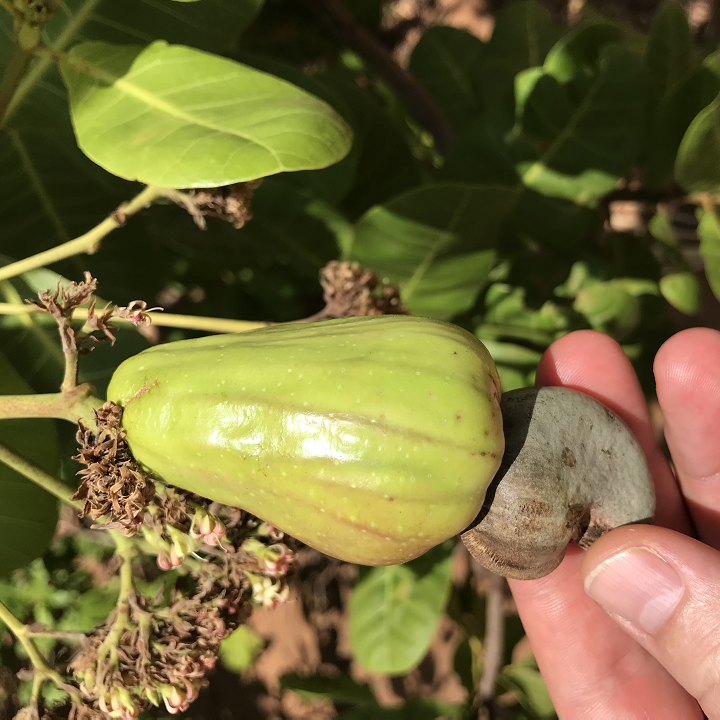Sustainability at Lorenz
We are determined to keep improving the environmental and social impact of our actions. To take our customers, partners and all interested parties on this journey with us, we publish an annual sustainability report.
In June, we published our fifth sustainability progress report. One highlight: we were able to achieve our salt reduction target a year earlier than planned. We have also made good progress in other areas: For example, we have developed and adopted targets for our Lorenz Nutrition Profile. In the area of regenerative agriculture, we have expanded our activities beyond potatoes to include other raw materials such as oil, wheat and peanuts. And we were able to achieve significant CO₂ reductions in all externally reviewed climate targets.
Find out more:
Sustainability Progress Report 2024
Factsheet
Our previous reports:
Sustainability Progress Report 2023
Factsheet
Progress Report on Sustainability 2022
Progress Report on Sustainability 2021
Lorenz Report on Sustainability 2020/2021
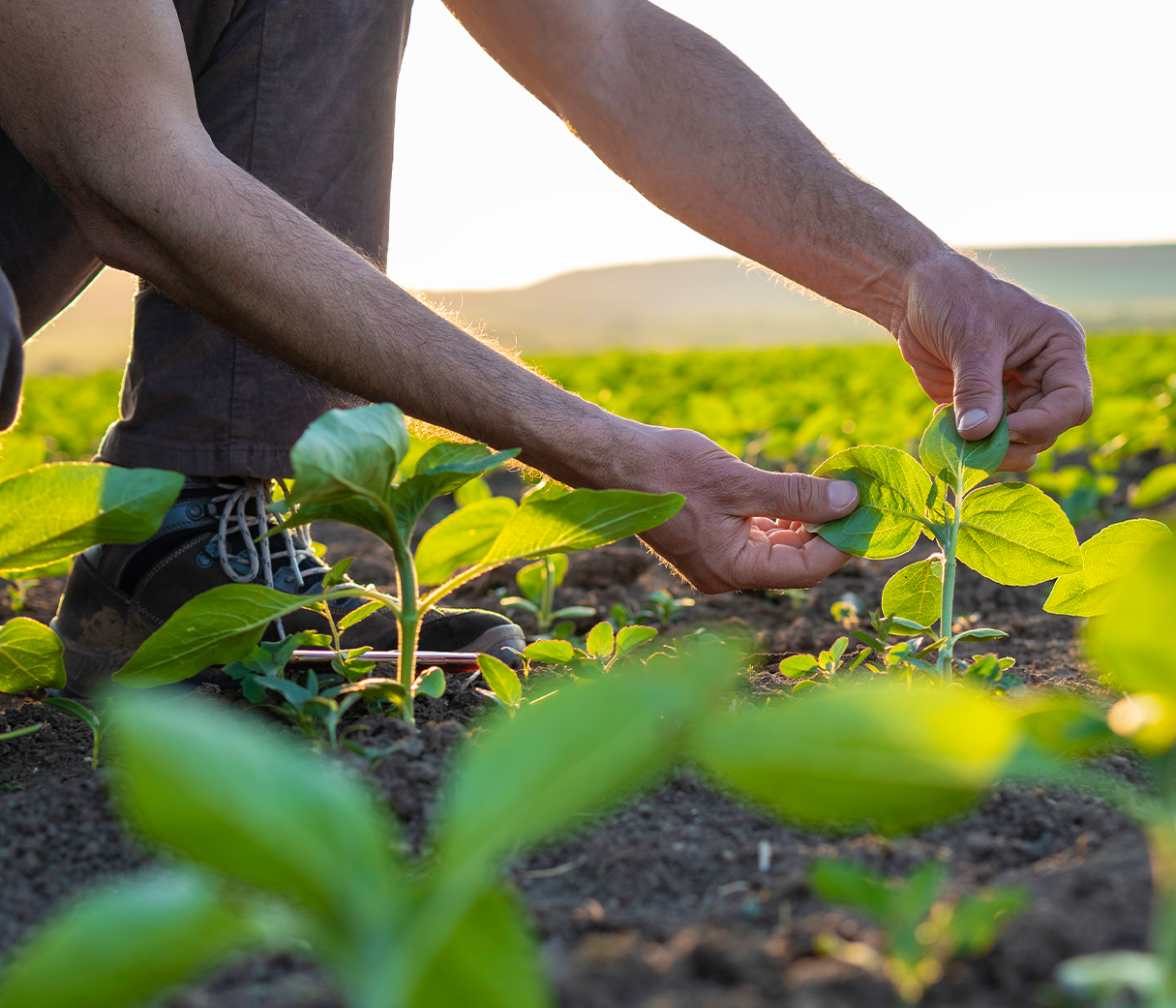
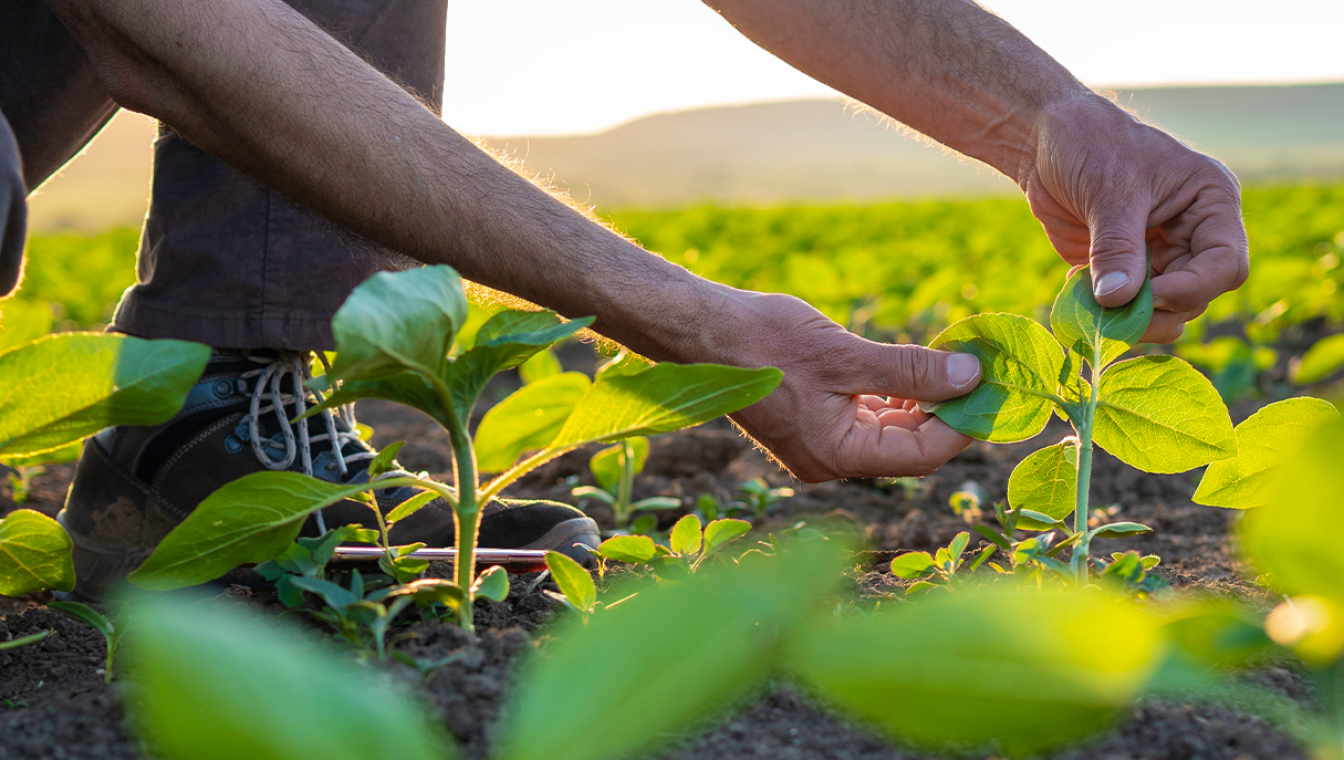
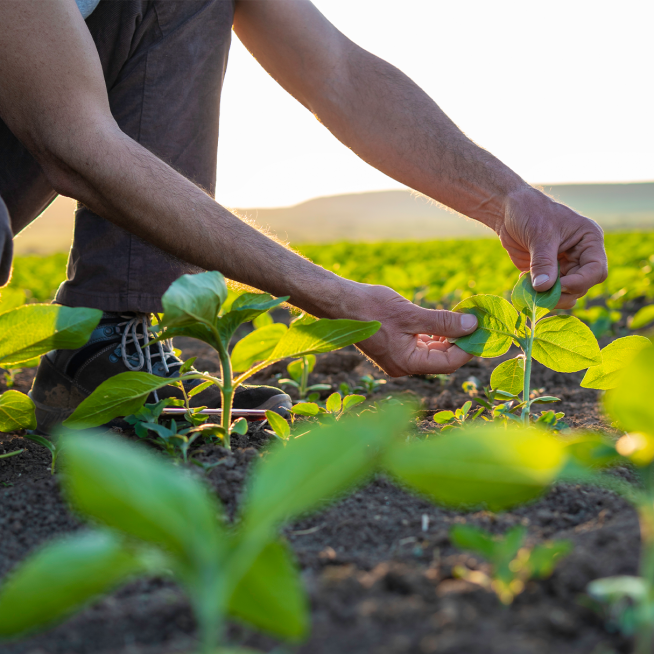
To ensure that our snacks arrive on your table safe and sound and in top quality, they need clever packaging. But how do you do that if you want to conserve resources at the same time? This is the question our packaging specialists deal with every day.
Our Mission: #Less plastic sums up our approach: We want to use as little plastic as possible. Furthermore we want to use only recyclable packaging.
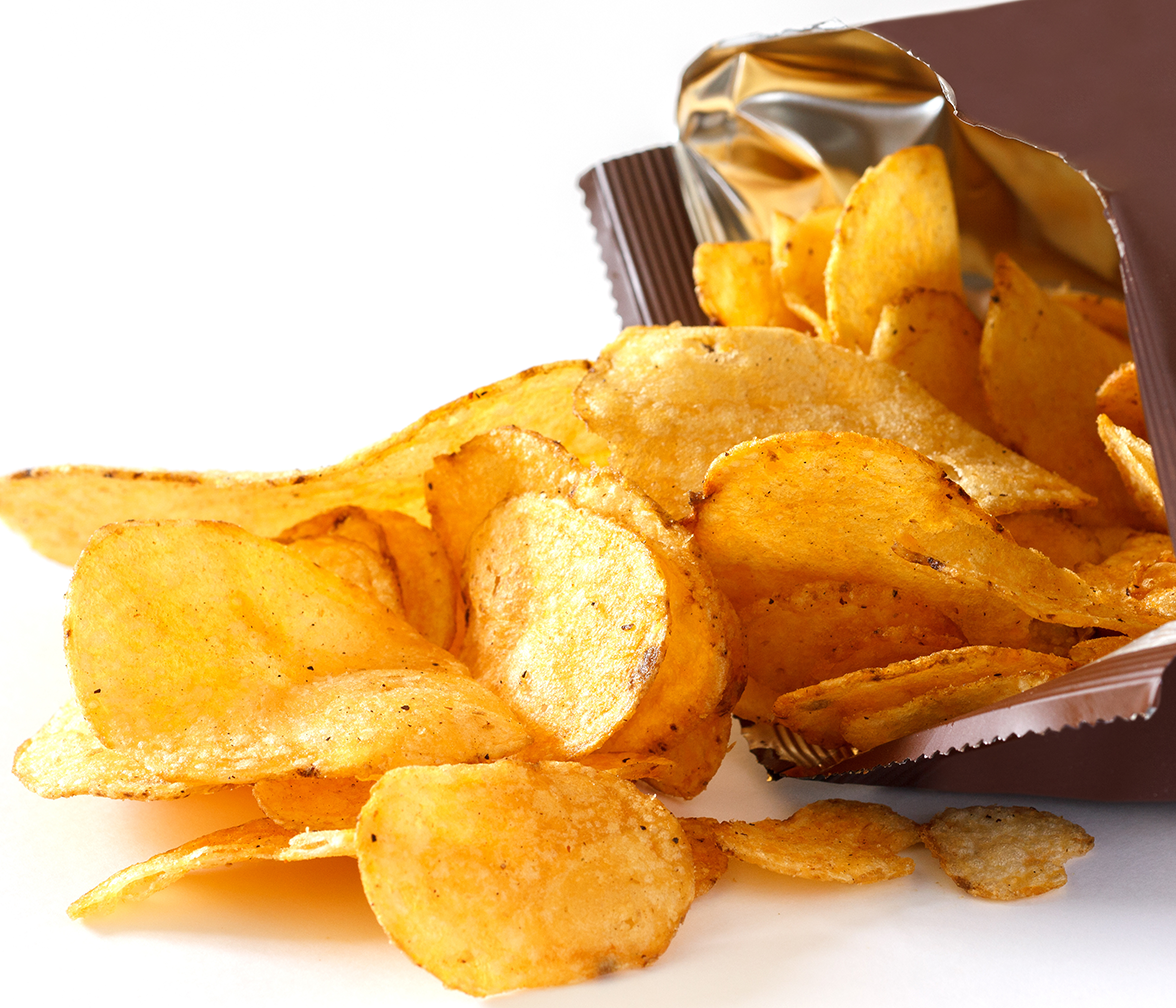
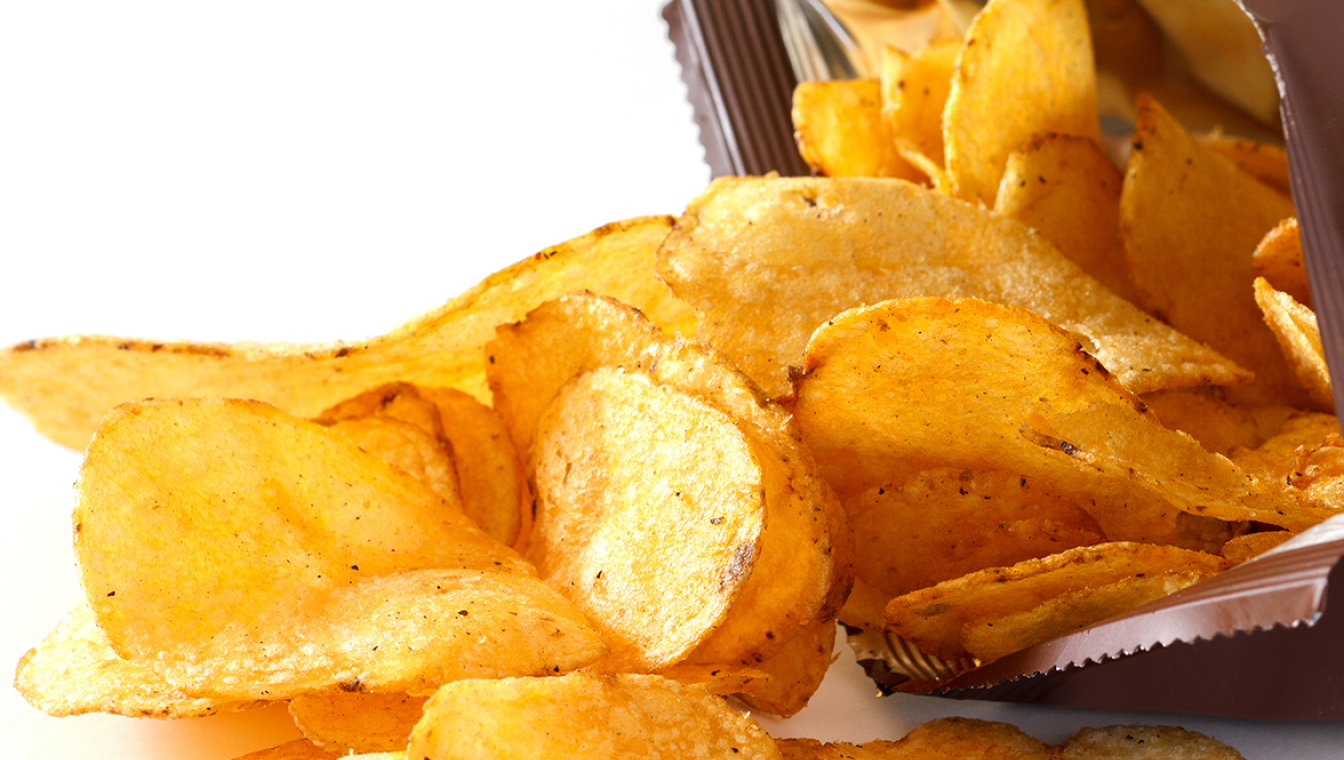
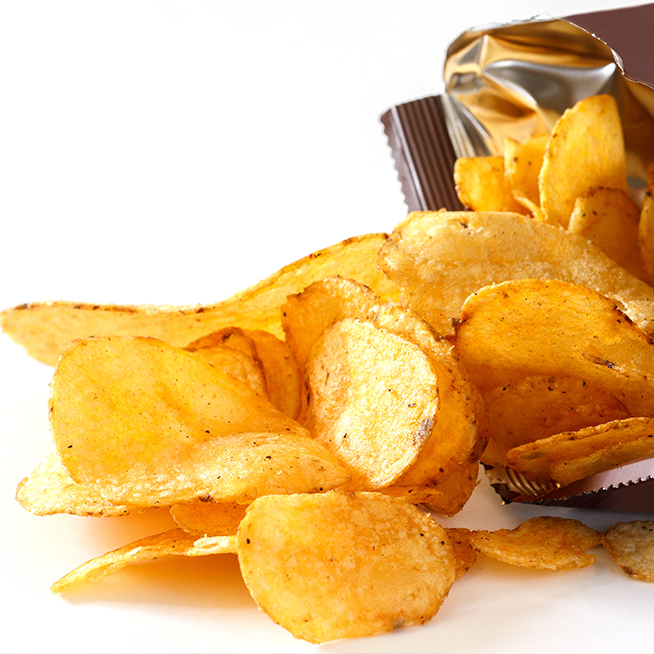
By the end of 2025, we want to reduce our plastic consumption for our primary packaging by 15% compared to 2019. An international team consisting of colleagues from Packaging and Purchasing has reviewed the entire Lorenz packaging portfolio for reduction potential. We have already optimized some of our films by, for example, thinning the packaging material, shortening the films by omitting the Euro hole, or dispensing with extras such as the resealable sticker.
For Saltletts alone this has enabled us to reduce plastic use by 64 tons per year (compared to 2019) across the Group. We are also already working hard to reduce plastic in many other brands. Every time we redesign packaging, we get one step closer to our mission.



88% of our primary packaging is already recyclable, and by the end of 2025 we will have converted the remaining percentages. We already use mono-plastic packaging for most of our potato chip brands, Saltletts, Curly, Pommels and Monster Munch. Every single one of these packages is already highly recyclable according to the standard of the renowned testing institute cyclos-HTP.
Now we are specifically targeting non-recyclable packaging, such as the foil pouches for our nut products like NicNac's. In countries where a recycling structure is in place, we are gradually labeling our products with a recycling icon for greater transparency right on the shelf.
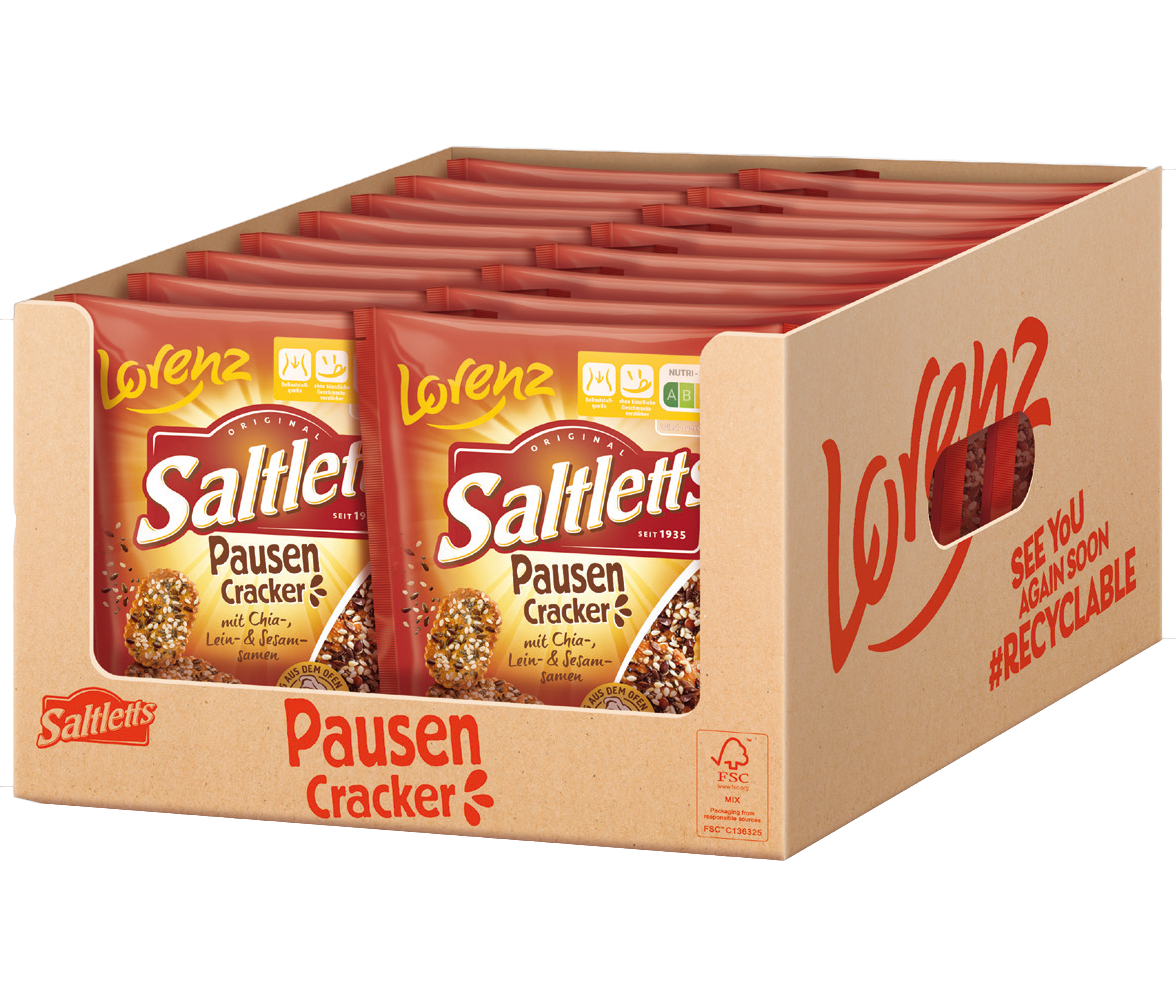
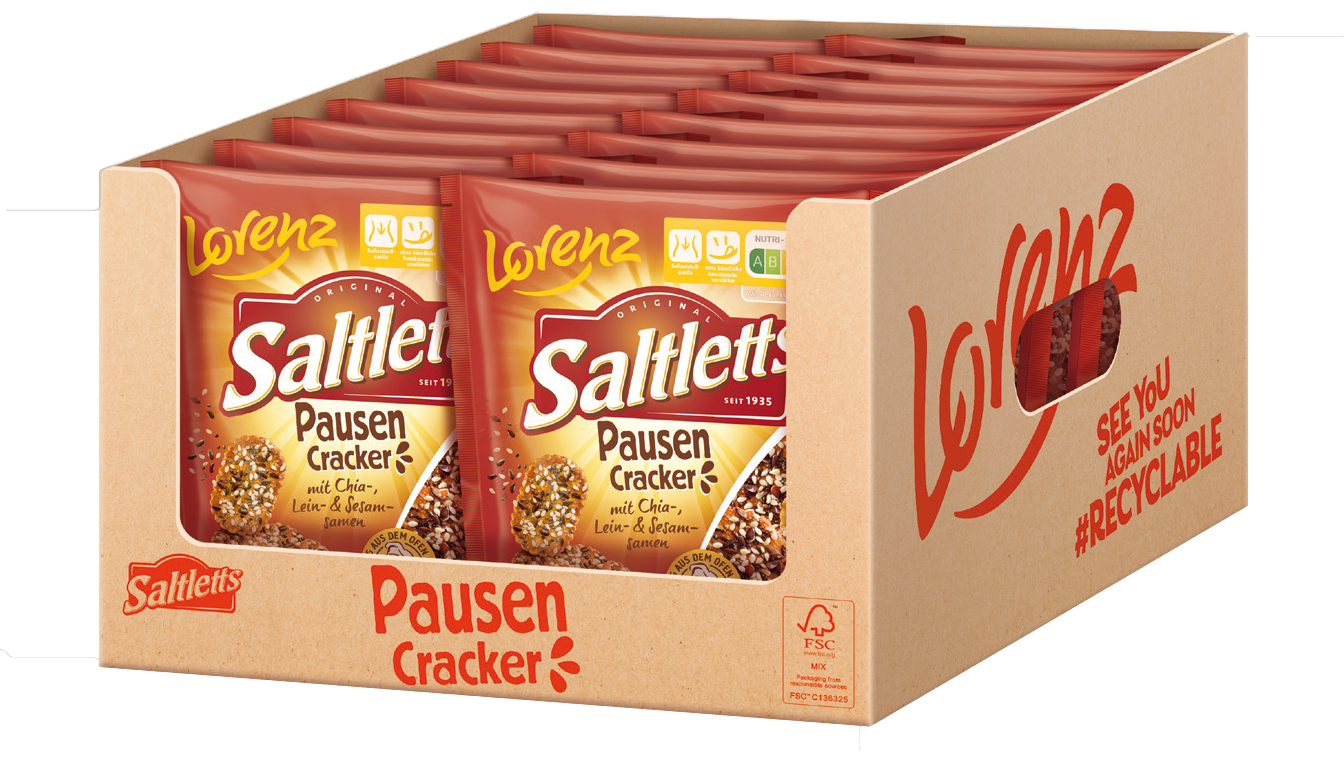

Our new brown, unbleached cardboard packaging saves resources and the environment – but still looks great. The cardboard that we use is FSC® Mix (FSC-C133957) certified and consists mainly of recycled material. FSC® stands for Forest Stewardship Council®, an organization that sets internationally valid environmental and social standards for sustainable forest management.
The product symbol FSC Mix indicates that wood-based material is sourced from FSC®-certified forests, and that the product uses recycled material and material from controlled sources. What’s more, our locations in Germany, Poland and Austria are all certified according to the FSC® Standard for exemplary forest management.
We know that our brands are not vegetables. However, we also want to offer solutions for a modern way of life and diet and thus, continuously adapt our recipes. For example, by reducing the salt content. Our goal: By the end of 2025, reduce the salt content in our entire product portfolio by 15 percent compared to 2019.
And how do we do that? Every new product development must contain 15 percent less salt than the average for that brand from the outset. We started with Crunchips Rustics in Germany. And we are reviewing all existing recipes with the aim of reducing the salt content here as well.
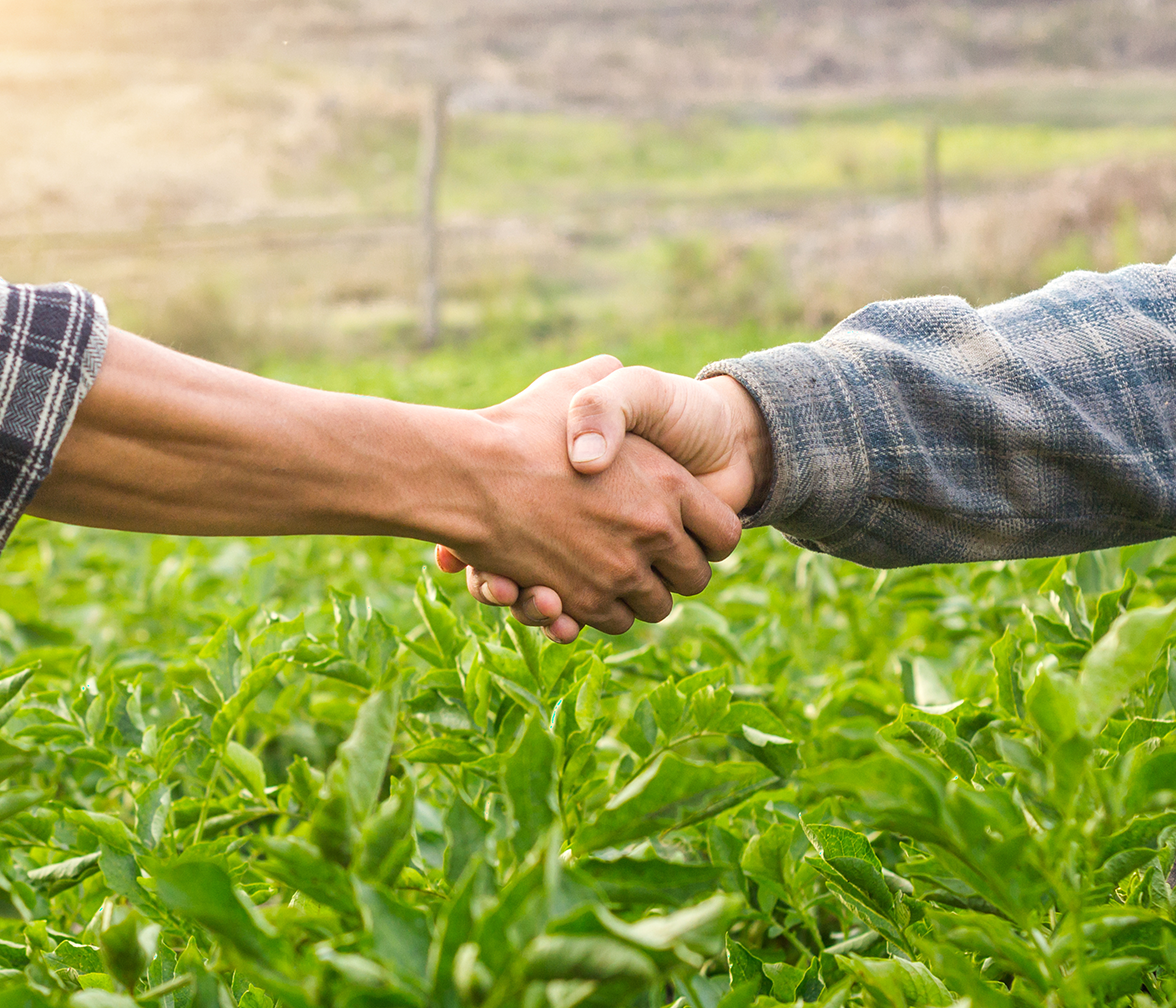
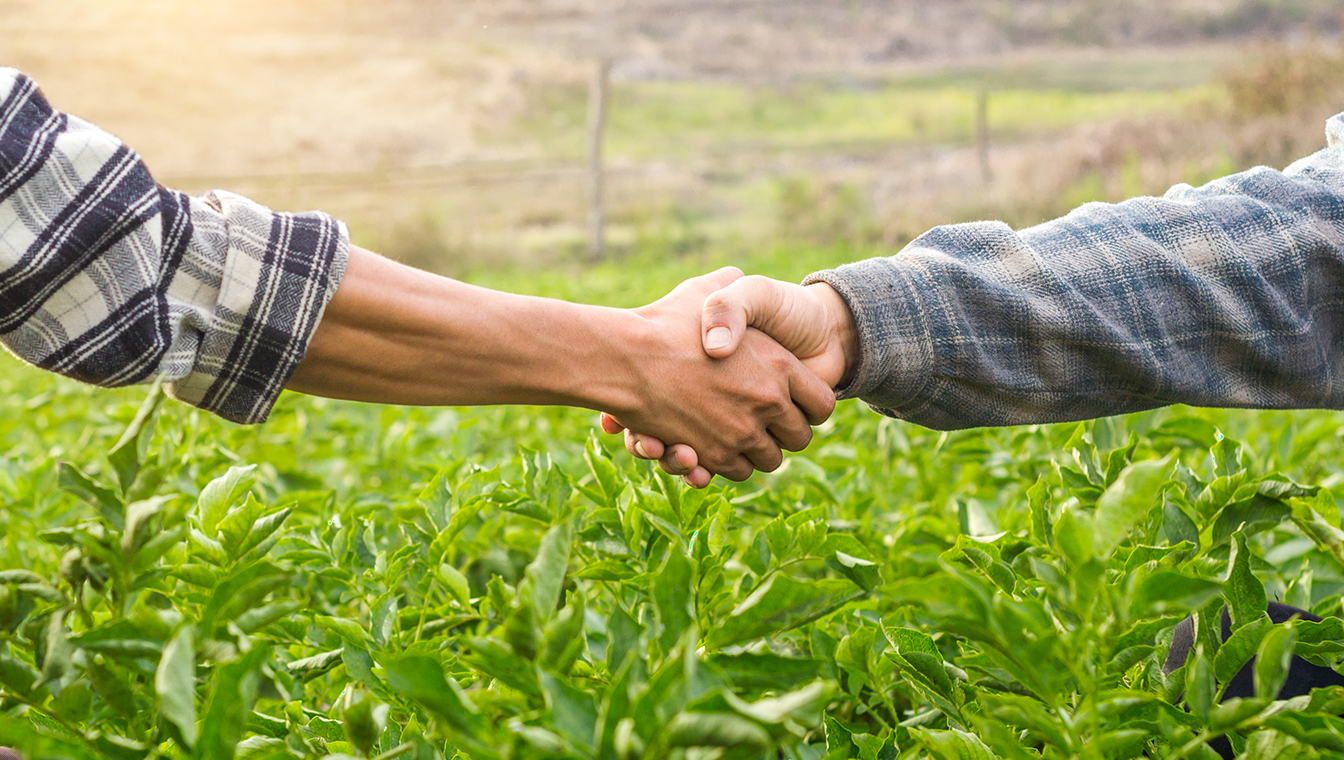
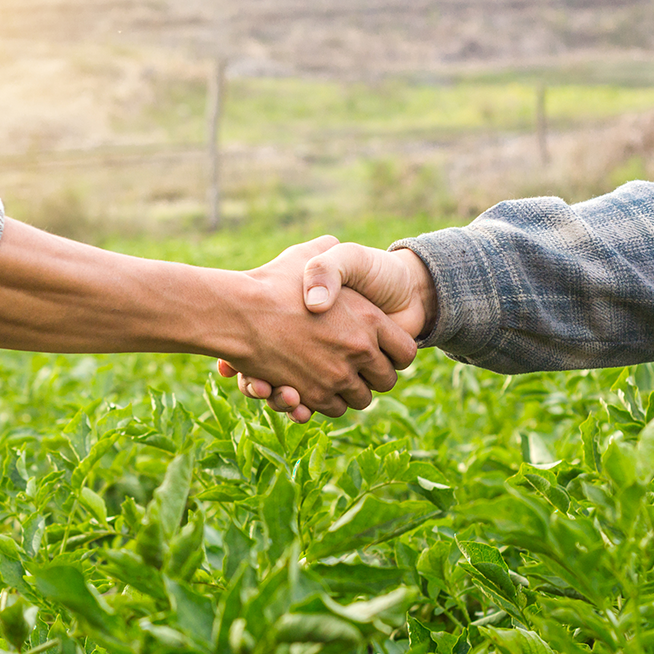
We rely on long-term partnerships with our suppliers, who share our values. Over 300 potato farmers have been working with us – some for over 50 years – in controlled contract cultivation. Strict regulations guarantee verifiable cultivation methods to protect the environment and consumer safety – your safety. We reject all use of genetically modified plants. This “controlled contract cultivation” provides us with high quality potatoes and enables sustainable management to preserve the environment. Short transport routes also help save resources.
Potatoes are just one of many examples. With our wheat and peanut cultivation and processing, our focus is again on sustainability and continuity.
Acting responsibly to make the global economy more socially and ecologically responsible - that's what the UN Global Compact of the United Nations stands for. Since December 2020, we have been a participant in the world's largest initiative for responsible corporate governance. We are aware that global challenges can only be solved together. That is why we want to work together with 15,000 companies and organizations from 160 countries on the vision of a sustainable global economy that benefits all people, communities and markets.
The UN Global Compact is based on 10 universal principles on human rights, labor standards, environmental awareness and corruption prevention, and 17 goals for sustainable development based on these principles.
For us as a company, this means that we consistently align our activities and strategies with these goals. For example, the 10 principles are reflected in our Code of Conduct, on which every employee is trained. We work on sustainable supply chains and fair working conditions, and on achieving less plastic and more recycling in our packaging.
We feel responsible for all people associated with Lorenz. This also applies to the producers of our raw materials around the world. In addition to agreeing on our own Code of Conduct, which is also binding for our business partners, we have summarized our principles for responsible sourcing in the document Our Responsible Sourcing Commitment. Our approach is to build and maintain trusting relationships with our suppliers and farmers in order to jointly establish transparent and fair supply chains. Together with various initiatives, we are also directly involved on site, for example with the Cashew Development Fund in Mozambique.
Initiative for Sustainable Agricultural Supply Chains (INA) and the Sustainable Nut Initiative (SNI)
The Initiative for Sustainable Agricultural Supply Chains (Initiative für nachhaltige Agrar Lieferketten (INA)) brings together players from private business, civil society, and politics. We are also on board. Together we want to achieve greater sustainability in global agricultural supply chains and improve the living conditions of small farmers everywhere.
Focus on the sustainable cultivation and processing of nuts: since 2015 the Sustainable Nut Initiative (SNI) has lobbied successfully for higher standards in the nut supply chain. We joined the initiative in 2020.
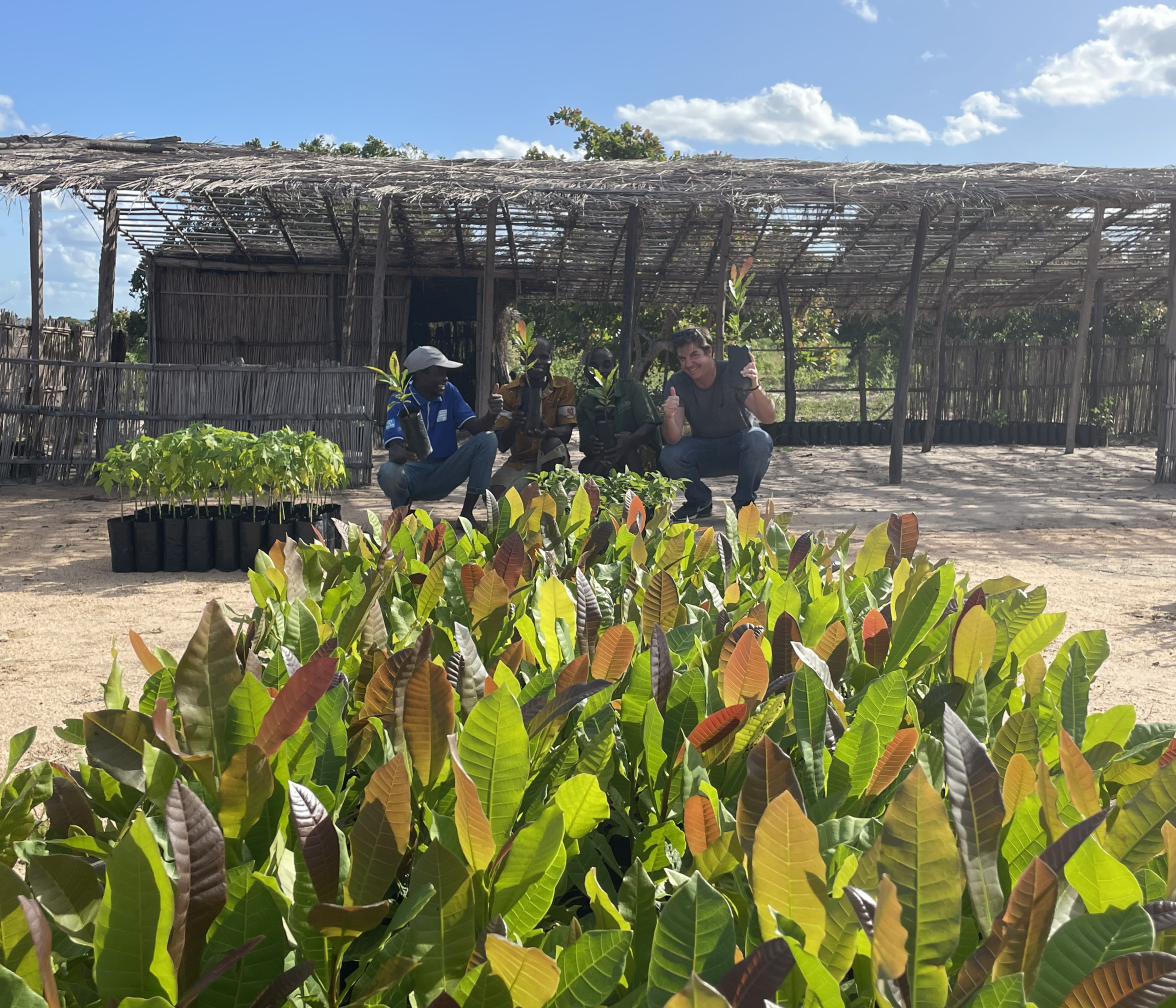
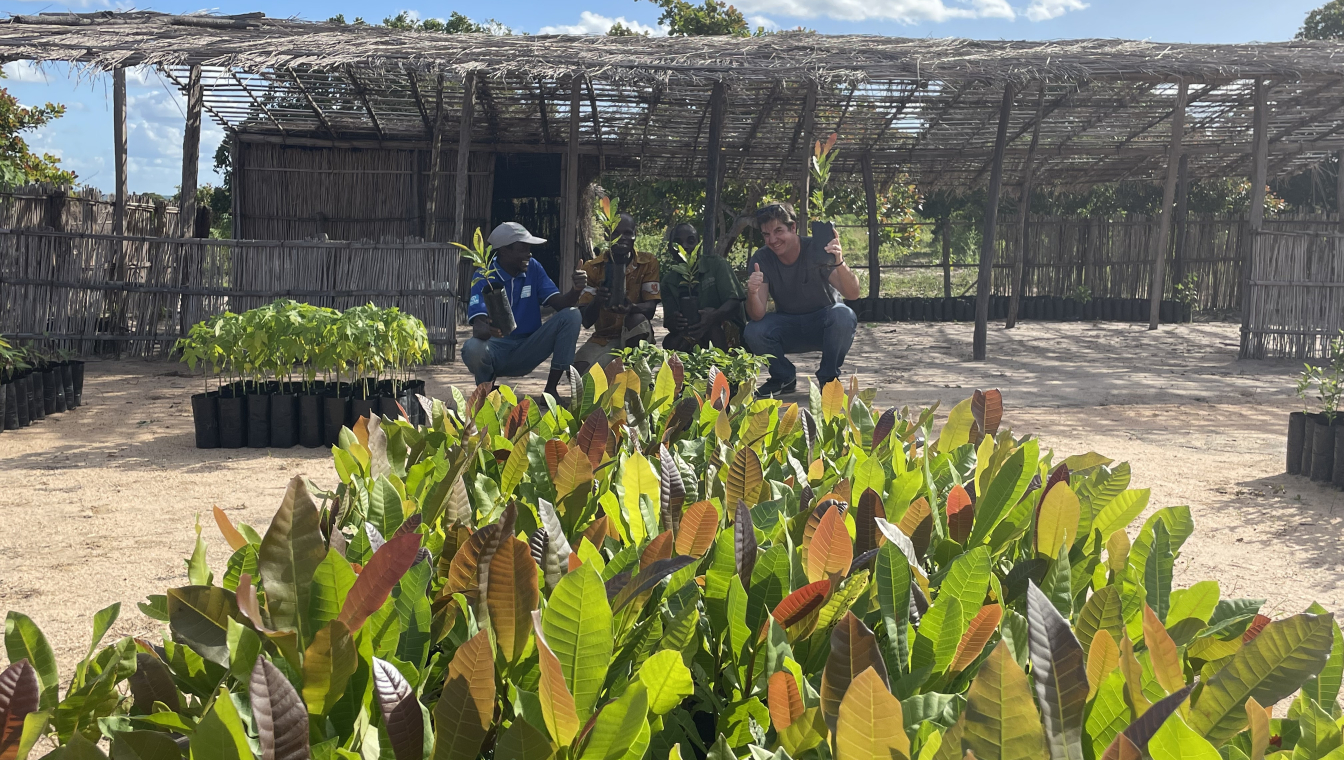
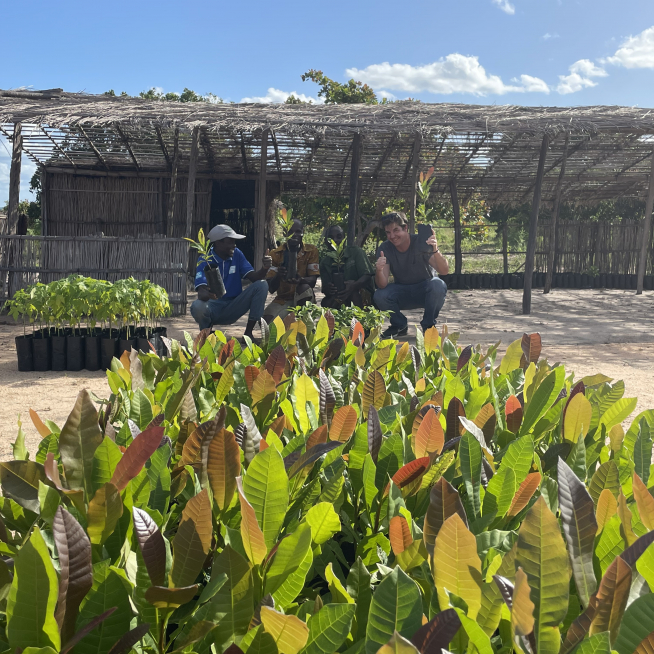
Ensuring high quality cashews while also taking social responsibility – we have been able to do this with the Cashew Development Fund. By working together with small farmers directly in Africa and giving them the opportunity to sell their produce.
Together in a development partnership with the Deutsche Gesellschaft für Internationale Zusammenarbeit (GIZ) GmbH and the Norwegian family-owned company BRYNILD, we support the development of the cashew sector in Mozambique in the project "Mozambican Cashew Nut Development Alliance".
This means specifically: increased yields and income for farmers and processors thanks to improved inputs and organizational and skills development along the value chain. This includes, for example, a Farmer Business School or training on good agricultural practices. The establishment of new tree nurseries and plantations has also already been realized.
These measures implemented by GIZ are, by the way, part of the ProEcon-PROMOVE Agribiz project, which is financed by the German Federal Ministry for Economic Cooperation and Development (BMZ) and the European Union (EU).
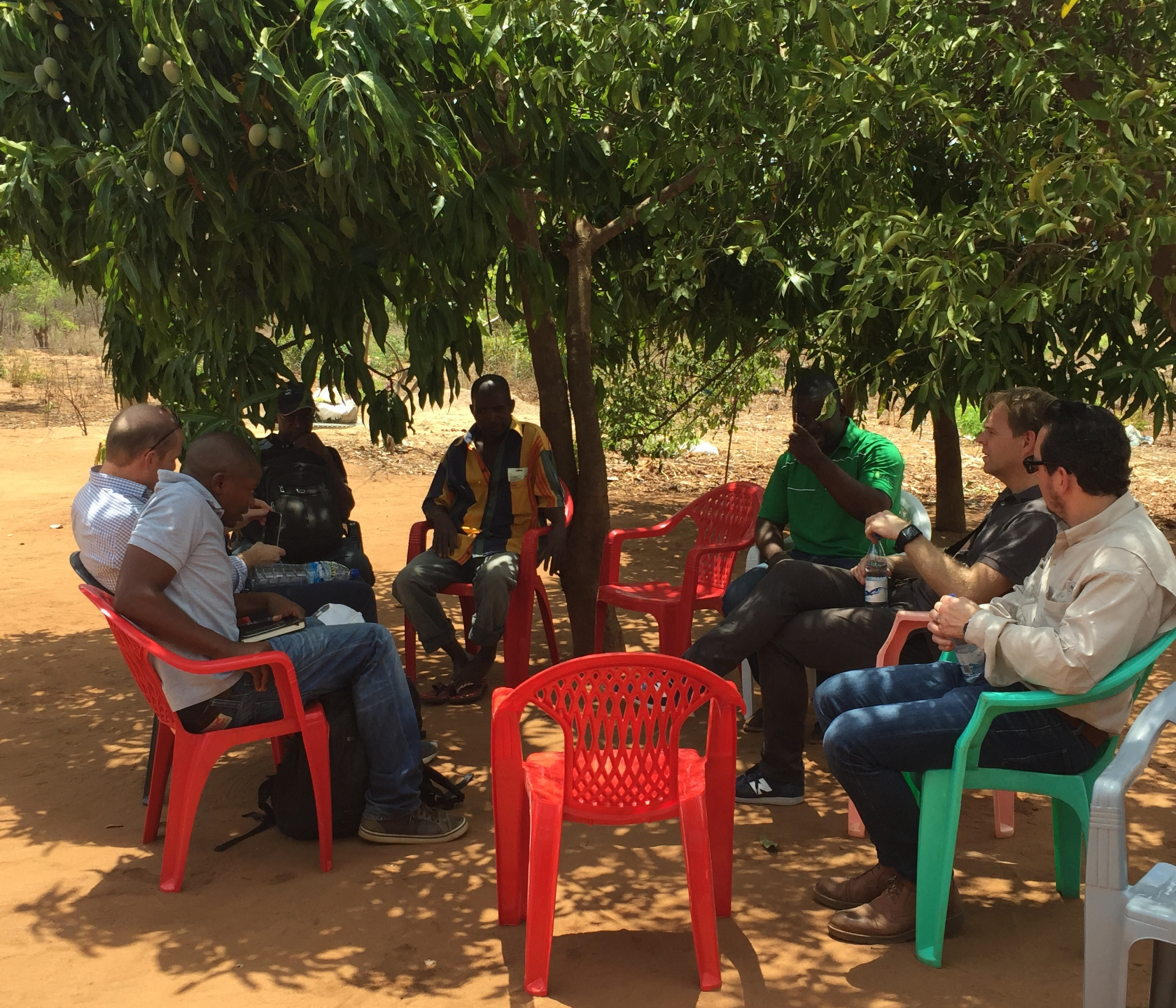
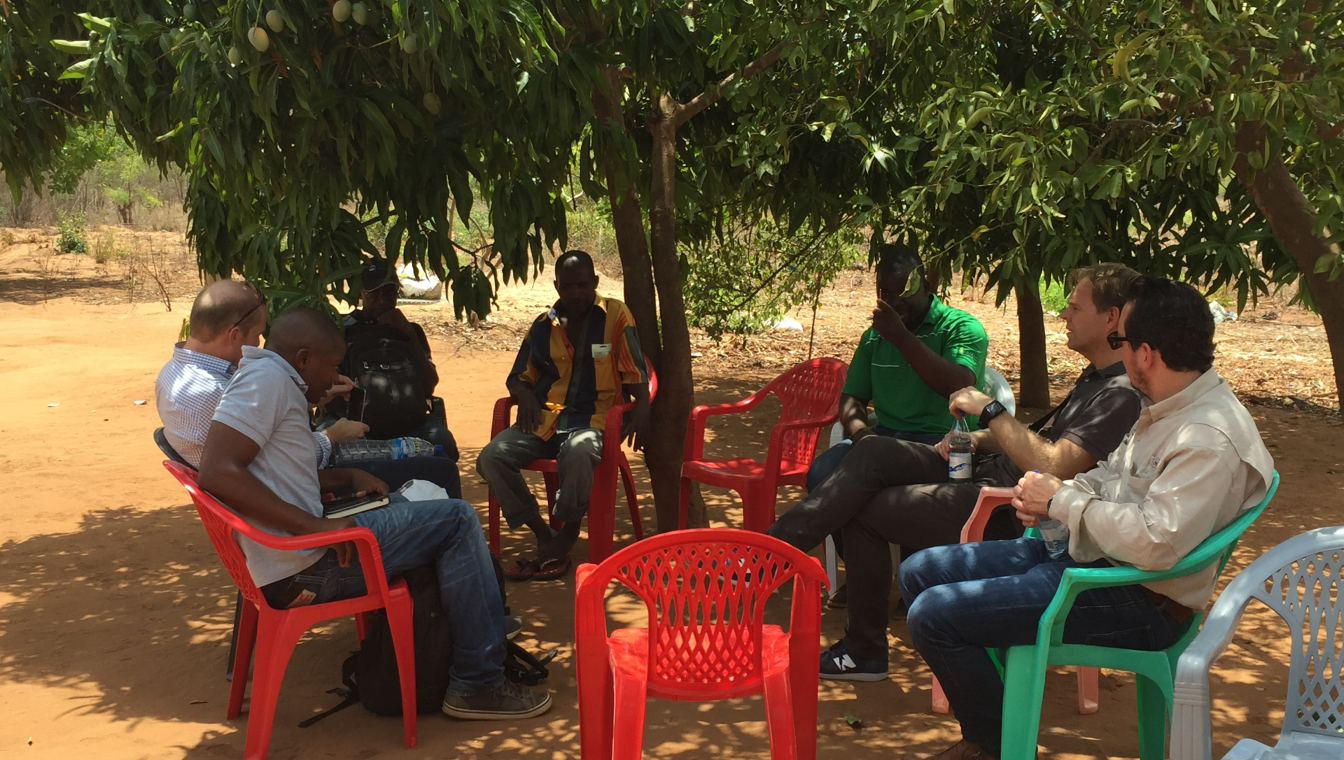
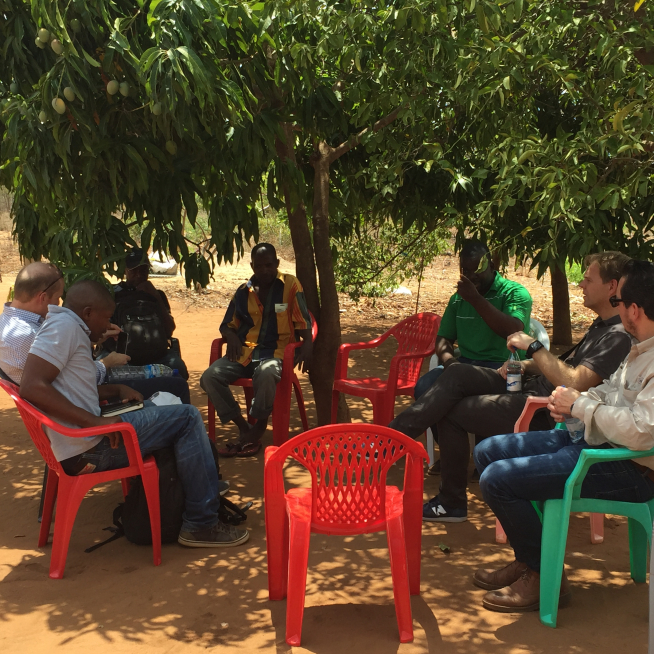
We feel responsible for all people associated with Lorenz. This also applies to the producers of our raw materials around the world. In addition to agreeing on our own Code of Conduct, which is also binding for our business partners, we have summarized our principles for responsible sourcing in the document Our Responsible Sourcing Commitment. Our approach is to build and maintain trusting relationships with our suppliers and farmers in order to jointly establish transparent and fair supply chains. Together with various initiatives, we are also directly involved on site, for example with the Cashew Development Fund in Mozambique.
Initiative for Sustainable Agricultural Supply Chains (INA) and the Sustainable Nut Initiative (SNI)
The Initiative for Sustainable Agricultural Supply Chains (Initiative für nachhaltige Agrar Lieferketten (INA)) brings together players from private business, civil society, and politics. We are also on board. Together we want to achieve greater sustainability in global agricultural supply chains and improve the living conditions of small farmers everywhere.
Focus on the sustainable cultivation and processing of nuts: since 2015 the Sustainable Nut Initiative (SNI) has lobbied successfully for higher standards in the nut supply chain. We joined the initiative in 2020.
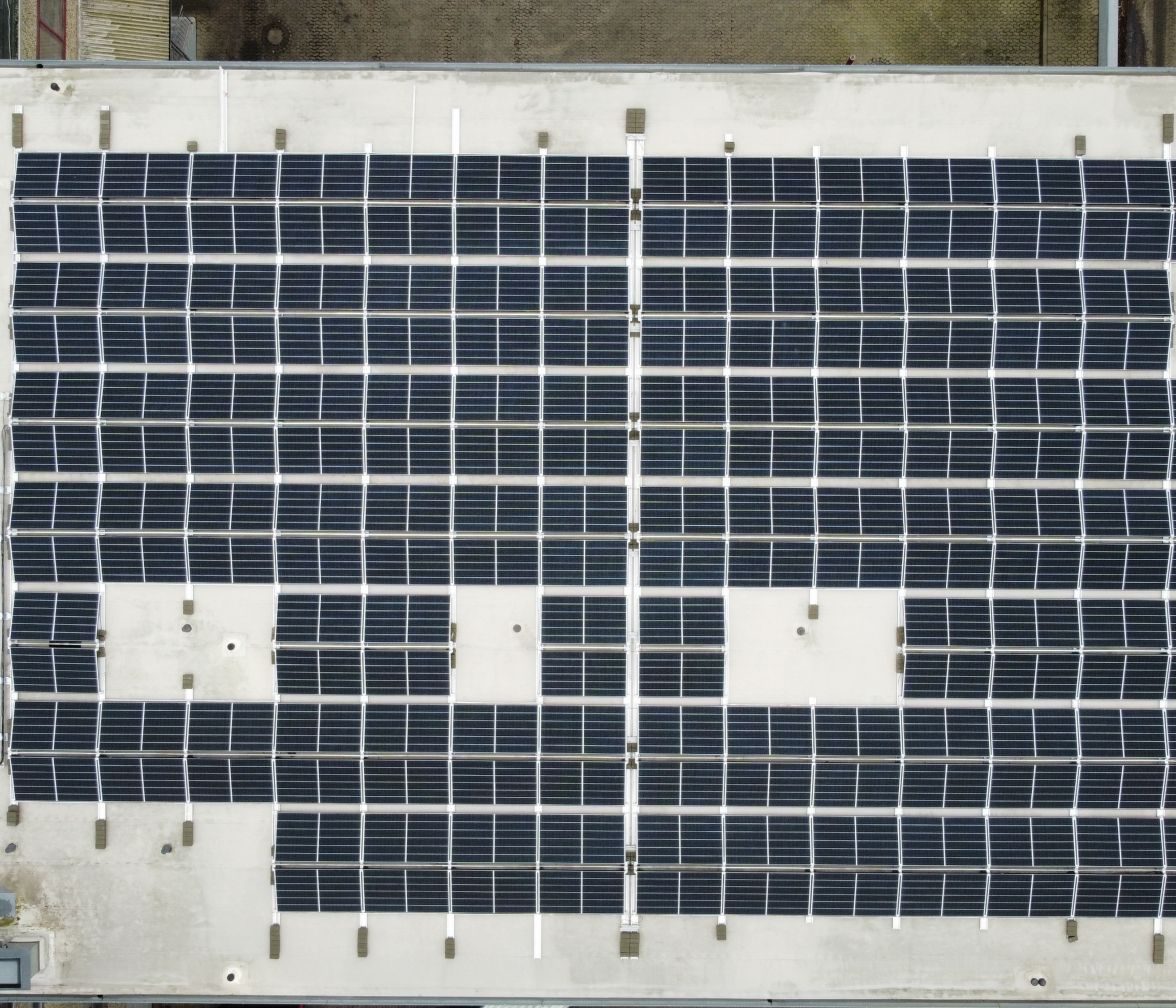
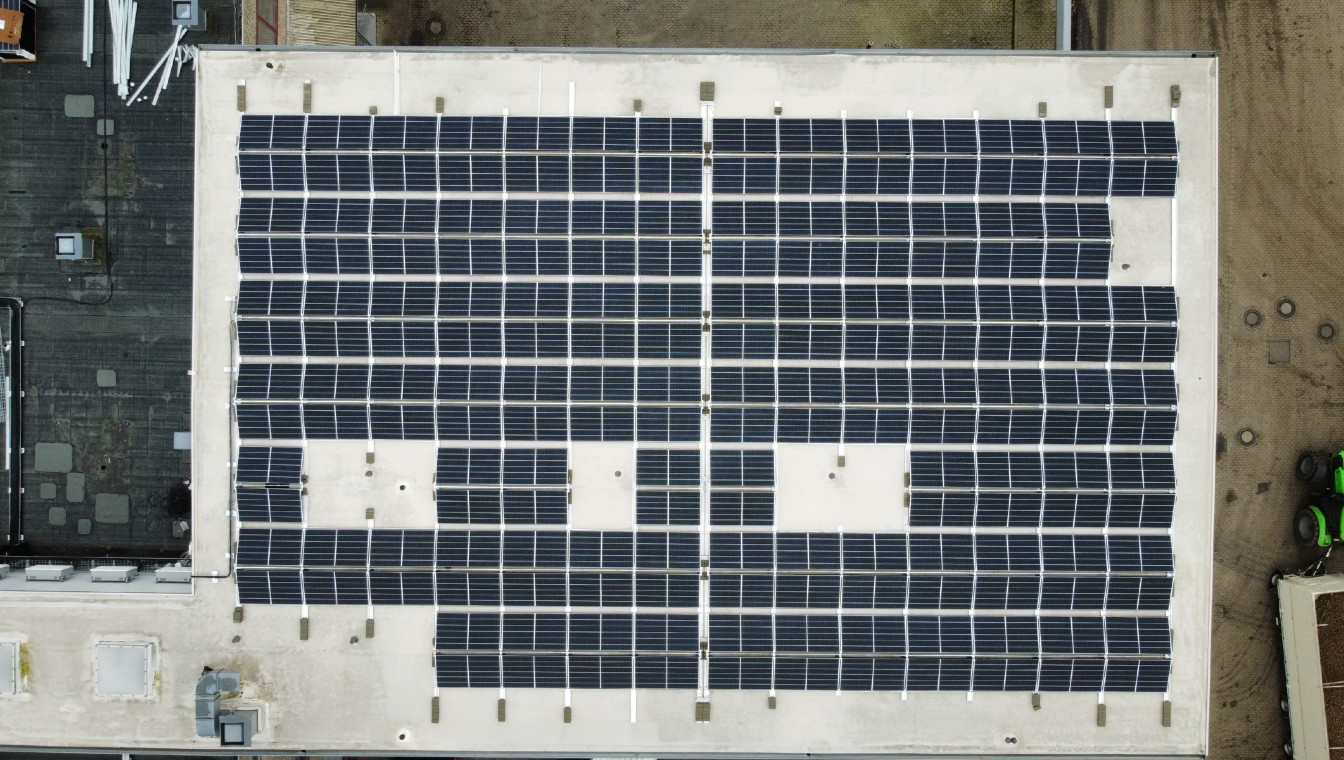
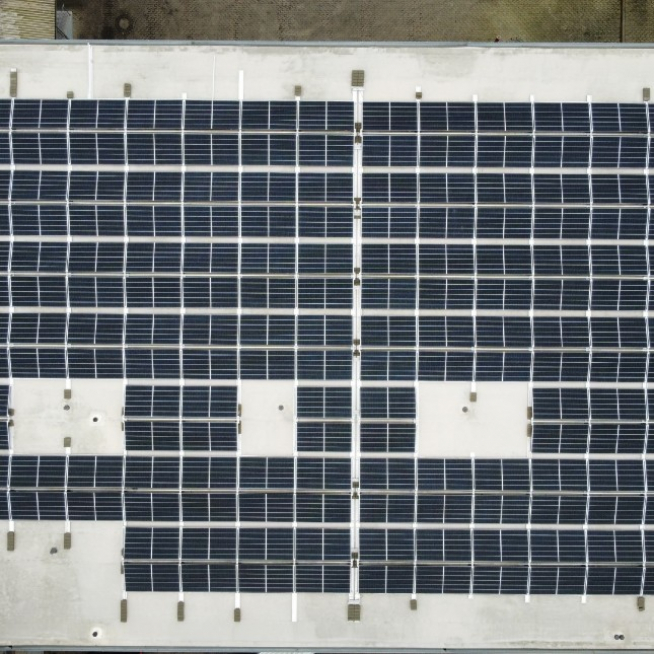
We are aware that as a manufacturing company we cause CO2 emissions. This is precisely why the sustainable use of energy is important to us. By 2045, we want to achieve the net zero emissions target along the entire value chain.
And how do we intend to achieve this?
1. We save energy: we cover the majority of our own energy requirements with natural gas. We cannot yet replace this, but we can reduce it, for example by using heat recovery systems and energy-efficient machinery.
2. We use electricity from renewable sources: since 2022, 100 percent of our electricity requirements at our own sites across the Group have come from renewable sources.
3. We produce part of our energy requirements ourselves: for example in Hankensbüttel via a photovoltaic system installed in 2021 (see photo). At our plants in Kreba and Neunburg, we have our own combined heat and power plant.
4. We conserve resources: at the Neunburg and Stanowice sites, we have our own biogas plant.
You can find more information in our You can find more information on environmental and climate protection in our Environmental Policy document and our Sustainability Reports.
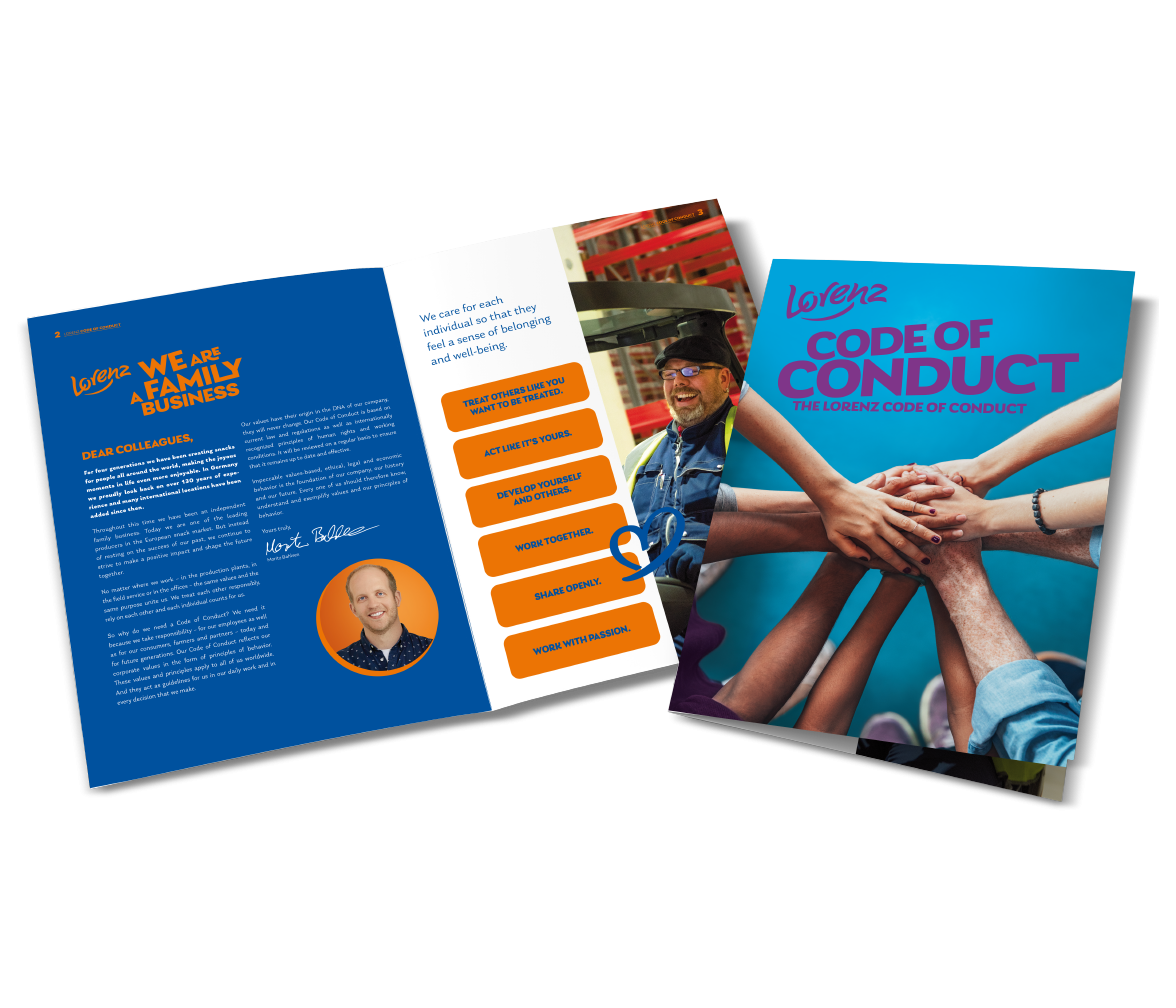
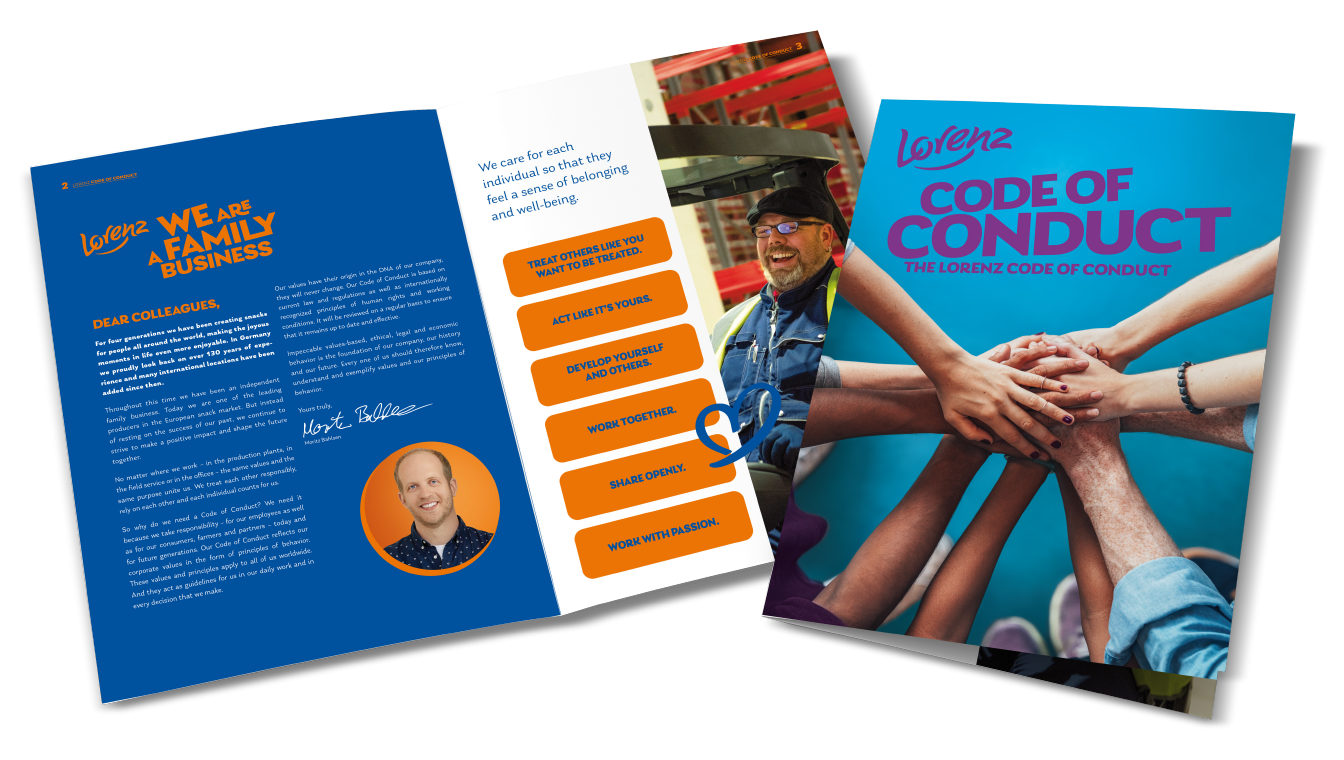

With our Code of Conduct, we at Lorenz commit ourselves to ethically, legally and economically impeccable behavior. Our principles are internationally valid. They follow UN conventions and the core labor standards of the International Labor Organization (ILO).
We expect our suppliers and service providers to act according to comparable guidelines. To this end, we have developed our Code of Conduct for Business Partners, which defines principles on business ethics, human rights, labor standards and the environment. We are now also introducing this internationally.
We also want to have our ethical and social responsibility regularly reviewed by external audits and continuously develop ourselves here.
The Sedex Members Ethical Trade Audit (SMETA) is the most widely used audit procedure in business for sustainable and ethical behavior. In recent years, we have already conducted SMETA audits at our European sites. The subsidiary in India was added in 2023, followed by our majority shareholding Vaalharts Groundnuts Marketing (Pty) Ltd (VGM) in South Africa in 2024, meaning that in future we will cover all production sites (except Kirishi) and pre-production sites (shelling and sorting nuts) and audit them regularly every three years in accordance with SMETA.
Our Human Rights Policy complements our Code of Conduct. You can view our policy statement here.
